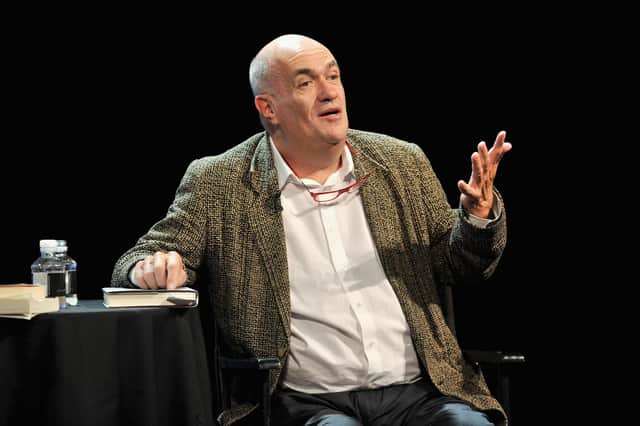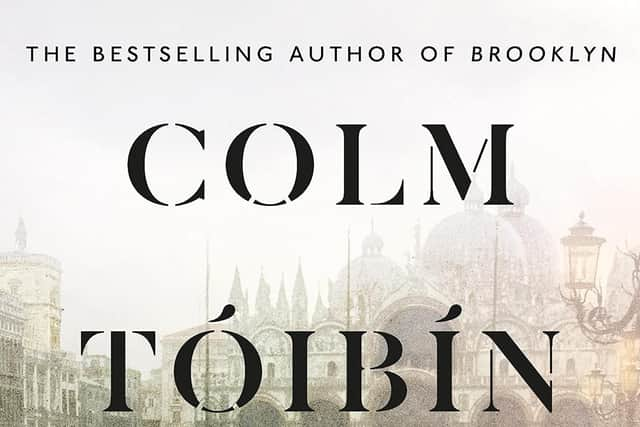Book review: The Magician, by Colm Tóibín


The Magician of the title is Thomas Mann, one of the great novelists of the 20th century – it was what his talented children called him, originally when they were small. Colm Tóibín has made a novel of his life. The biographical novel is a hybrid, currently fashionable. Tóibín has already made Henry James the subject of such a novel, as has David Lodge who has also treated HG Wells in this way. Curiously novelists, though they may lead apparently uneventful lives, may be better subjects for this approach than men of action. They leave more evidence of what they think and feel. Tóibín is scrupulously faithful to the evidence. There is little invention here, much interpretation.
Mann’s first novel, Buddenbrooks, made him famous in his twenties. It drew on his own family background, mercantile life in Lubeck. His marriage to Katia Pringsheim, daughter of a cultured Jewish family, made him independently wealthy for life. Toibin’s treatment of Katia is marvellous; she was a remarkable woman who comes to life more vividly here than in any biography of Mann I have read. They had six children and the lifelong marriage was happy, despite Thomas’s homoerotic inclination and fantasies.
Advertisement
Hide AdThomas and Katia were on holiday in Switzerland when Hitler became German Chancellor in 1933. On the advice of their fiercely anti-Nazi daughter Erika, they remained there. Thomas had been anti-Nazi from Hitler’s days in Munich (where the Manns lived). Hitler was, he said, “a catastrophe.” Nevertheless he wrote an essay “Brother Hitler”, seeing him as a failed artist. For the first three years of his exile he refrained from denouncing him. Erika and her brother Klaus criticized his inaction. His reluctance to burn his boats was, as Tóibín understands and shows, defensible. When he did so in 1936 he was stripped of his German citizenship and his books could no longer be published there.


In opposition he became the voice of the “Other Germany.” He spent the war years in the USA, warned at first by people close to Roosevelt not to call for America to enter the war. Later he broadcast to Germany on the BBC, his words recorded in America and transmitted to London. He was one of the first to tell the Germans of the death camps and the Nazis’ “Final Solution of the Jewish problem.” Germany had made a pact with the Devil, the theme of his last big novel, Dokter Faustus, to my mind his greatest. The FBI viewed the Manns with suspicion, especially Erika and Klaus, “premature anti-Nazis” and sexual deviants. Refusing to return to Germany after the war and disillusioned by the course of American politics, Mann ended his life in Switzerland.
Tóibín makes a wonderful novel of all this. There is almost no invention that I could spot and yet it reads as a novel, not history or journalism. I have always respected Mann. Tóibín makes me feel affection for him as well as admiration. The relationships with the remarkably talented, often difficult, brood of children, with his wife Katia and his brother Heinrich, also a fine novelist and a man of the Left, are intelligently and sympathetically treated.
Tóibín has done something very difficult, harnessing the public and private lives of his characters. Anthony Powell thought there were few more difficult things for a novelist than portraying the course of a marriage. Tóibín does this splendidly; here the novelist brings to vivid and immediately dramatic life what in a biography might only be reported or analysed. Moreover by treating all relationships in this manner, Tóibín offers what is very rare in biographies – that is, humour. We are never allowed to forget the horrors of Nazi Germany, but the novel by its comprehensive nature also admits comedy. Mann himself always put irony at the centre of his fiction.
This is a very accomplished and enjoyable novel. It reads easily, more easily indeed than Mann’s own novels. But it is so interesting and understanding that many who read it are likely to be encouraged to return to Mann’s own works or tackle them for the first time. Certainly it leaves me eager to read Buddenbrooks, The Magic Mountain and Doktor Faustus again, also his only comic novel, The Adventures of Felix Krull, Confidence Man, begun and abandoned before the First World War, taken up again in his old age before being again interrupted, this time by the author’s death. I had hours of pleasure from Tóibín’s book; I look for more from a return to Mann’s novels.
The Magician, by Colm Tóibín, Viking, 435pp, £18.99
A message from the Editor:
Thank you for reading this article. We're more reliant on your support than ever as the shift in consumer habits brought about by coronavirus impacts our advertisers.
If you haven't already, please consider supporting our trusted, fact-checked journalism by taking out a digital subscription at https://www.scotsman.com/subscriptions